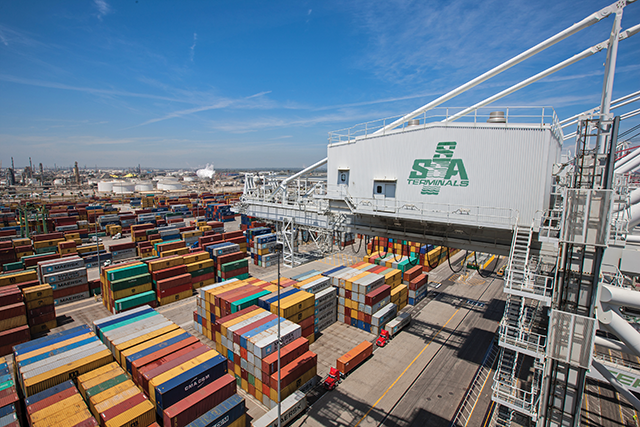A report released by Boston-based Economic Development Research Group Inc. on Feb. 25 found the Port of Long Beach accounts directly for some 18,910 jobs in the city – including 1,930 construction jobs – with another 32,280 workers indirectly employed due to port activities.
Another 575,000 trade, construction and tourism jobs in the five-county Southern California region can be attributed to Port of Long Beach, with another 2.6 million added to the total when the port’s impact is expanded nationwide.
The head of the nation’s second busiest port, Mario Cordero, said a 10-year, $4 billion infrastructure investment has helped Long Beach’s port remain competitive and bolstered the local economy, but he’s ready for a trade war with China should it come.
Most of the nation’s Chinese imports come through the Long Beach and Los Angeles ports.
“No matter what the situation is, the Port of Long Beach is prepared to address substantial change,” Cordero said.
This year, the port has dedicated nearly three-quarters of its $982 million budget for the 2019 fiscal year ending Sept. 30 to capital improvements, including a new headquarters in Long Beach’s new civic center downtown. When adopted, the port forecasted sustained shipping volumes and $400 million in revenue.
If there’s a downturn, Cordero said he doesn’t expect changes to the port’s capital program, set to wrap up by 2020.
“We will continue with our initiatives in a fiscally responsible fashion,” he said.
Chris Thornberg, an economist and founder of Westchester-based Beacon Economics, is skeptical about the port’s impact on the local economy and doubts it would take a hit from tariffs. The EDR Group report said 1 in 5 jobs in Long Beach were generated by the port.
“The trade war isn’t as scary as they claim, and the port isn’t as important to the local economy,” Thornberg said.
He said already weaker Chinese currency against the dollar could offset some of the tariff costs, if imposed.
But the threats are pinging around the supply chain, as retailers and manufactures are moving some operations from China, said Tom Gould, a trade consultant with Sandler Travis & Rosenberg.
Those threats might not reach the Port of Long Beach itself, however.
“We are seeing companies moving out of China, but I don’t see them moving out of the port,” he said.

